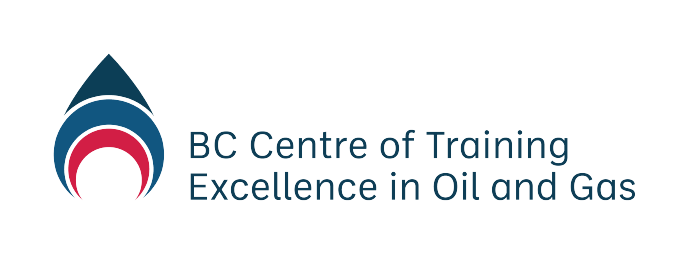-
Module 2.0 How to be Successful in this Course
-
Module 2.1 Introduction to Natural Gas
-
Module 2.2 The Natural Gas Industry in British Columbia
- Overview
- Learning Outcomes
- Natural Gas Science – The Simple Version
- Natural Gas Science – Chemistry
- Natural Gas Science – Physics
- Natural Gas Science – Units of Measurement
- Natural Gas Science – Geology
- Natural Gas Resources and Uses
- Oversight of the Natural Gas Industry
- Understanding Land Rights and Natural Gas
- Energy and the Future
-
Module 2.3 Upstream – Well Site Selection, Preparation and Drilling, Completion, Production, Water Recycling, and Reclamation
- Learning Outcomes
- The Upstream Sector – Extraction and Processing
- The Upstream Sector – Exploration and Site Selection
- The Upstream Sector – Preparation and Drilling
- The Upstream Sector – Completion
- The Upstream Sector – Production
- The Upstream Sector – Water Recycling
- The Upstream Sector – Reclamation
- Upstream Companies and Jobs in British Columbia – Companies
- Upstream Companies and Jobs in British Columbia – Industry Associations
- Upstream Companies and Jobs in British Columbia – Professional Associations
- New Vocabulary
-
Module 2.4 Midstream – Transportation, Processing, Refining
- Learning Outcomes
- The Midstream Sector
- The Midstream Sector – Processing Natural Gas
- The Midstream Sector – Liquefied Natural Gas
- The Midstream Sector – An Emerging Industry
- The Midstream Sector – Processing LNG
- The Midstream Sector – Proposed LNG Projects in British Columbia
- Transportation
- Midstream Companies and Jobs in British Columbia
-
Module 2.5 Downstream – Refining and Markets
-
Module 2.6 Health and Wellness in the Natural Gas Industry
-
Module 2.7 Safety
-
Module 2.8 Terminology and Communication
-
Module 2.9 Jobs and Careers
- Learning Outcomes
- Industry Outlook
- Technology is Changing Workforce and Skills
- Employment in the Natural Gas Industry
- Employment in the Natural Gas Industry – Types of Employment
- Employment in the Natural Gas Industry – Range of Jobs
- Employment in the Natural Gas Industry – High Demand Jobs and Occupations
- Occupational Education and Training
-
Module 3.0 How to be a Valued Employee
-
Module 3.1 Identifying Interests and Skills
-
Module 3.2 Looking for Employment in Natural Gas
-
Module 3.3 Applying for Employment in Natural Gas
At the start of this module, it said that potential employers often say that they value attitude over actual skills, and while your actual technical skills are extremely valuable, so is your attitude.
‘Attitude’ is kind of a catch-all word that covers soft skills. Good communication and time management, effective team building, and team working abilities; and being generous, honest and trustworthy are the most important soft skills to many employers, but a more complete list would also include words like:
| Dependability Flexibility Creativity | Flexibility | Flexibility |
| Adaptability | Leadership | Work Ethic |
| Conflict Resolution | Problem Solving | Problem Solving |
Figure 1 shows the top soft skills that are important within the natural gas industry.

Video 1: Hard Skills vs. Soft Skills (01 minute, 14 seconds)
Soft skills are any skill or quality that can be classified as a personality trait or habit. Let’s break down these words further so we really understand how they apply to the workplace! We’ll start with the ones specific to the natural gas industry.
Communication Skills
Communication skills are abilities you use when giving and receiving different kinds of information or messages. Some examples include communicating ideas, feelings, or what’s happening around you.
Communication skills include:
- Listening
- Speaking
- Making eye-contact
- Observing
- Empathizing.
There are also several different types of communication that you will need to use e.g. face-to-face, phone conversations, digital communication like text and email and social media.
It’s not unusual to be uncomfortable with one or more of these kinds of communication, but the more you practice the easier it gets—and if knowing what kind of communication you are good at can also help you identify a job path that suits you. If you really hate talking on the phone, for example then applying for a job in a dispatch office is not for you. If you really enjoy non-verbal communication, or communication using your body then perhaps being a flag-person could be a great first job for you!
Job Interviews
Face-to-face communication can often be the most challenging for many people. The first chance your future employer will have to understand how you communicate in a face-to-face setting will likely be in a job interview.
The first time you get to communicate who you are as an employee, is through how you present yourself.
- Show up for the interview 10–15 minutes early and dressed appropriately for the job you’re applying for.
- This means if you are applying for a job on a worksite, you should not wear a business suit. You should be dressed in clean, work-ready clothing that is in good condition.
- If you want to work in the accounting department, then you should be dressed in clothing more suited to that.
- It never hurts to ask what the company clothing-style is. Some are more casual, some more formal.
- Pay attention to the nonverbal cues you’re displaying through body language.
- Avoid actions such as slouching or looking at your phone during the interview.
- Look your interviewer(s) in the eye
- Employ active listening skills
Following these suggestions and displaying self-confidence are all positive ways to communicate in your interview.
Almost everything you do, both on the job and in life, can be seen as a form of communication. By identifying your strengths and weaknesses, and regularly practicing good habits, you can improve the way you connect and communicate with others.
Learning Activity 1: Practicing for job interviews
Instructions
- Follow the instructions provided by your instructor.
